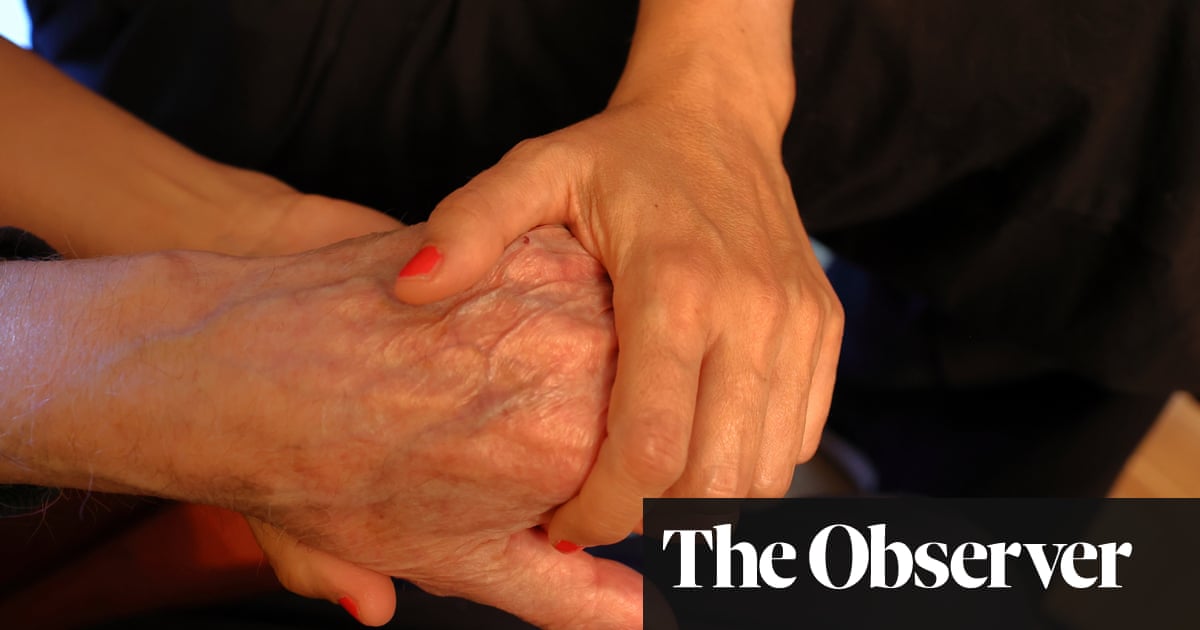The dilemma Six months ago I met a man I used to work with when I was young and he was middle-aged. Now I’m middle-aged and he is old. We established an incredible sexual and romantic connection. This was so powerful and beautiful. He told me I make him feel so free and so accepted and loved. He told me he loved me and wanted to be with me, for us to belong to each other. Incidentally, most of my previous relationships have been with men who are much older than me, but it’s not the issue.
My older gentleman gets incredibly close, is loving, gentle and open, then a few days later, I get a call from him saying he can’t cope with the age difference, he is conflicted about his feelings and wants to be on his own. He tells me to meet someone my own age, but when I try to move on, he gets back in touch. Over time, he will connect with me intensely in person, only to reject me by text or phone.
Back in person, we make love, and he cries and tells me he is sorry and that he loves me. I feel this is his authentic self, but I have come to dread what is coming next.
I began to keep a record of how often this has happened. Over the past six months, we have had 20 incredible days/nights together, but he has pushed me away eight times. That is embarrassing to admit. I cannot walk away as I love him dearly and I can see the person within him who is crying out to be loved.
I just wish that my gentleman could be happy with me, and we could enjoy some time together, as life is short and I want to enjoy it and share my love with someone special. Age differences do not trouble me at all.
Philippa’s answer Words of love, they’re great, eh? But without behaviour to follow them up they are meaningless. They are merely the words of seduction. When I watch catfish documentaries on Netflix, words of undying love and “we should be together” always seem to be part of a trap the victim falls into. It’s important to note that his words, even if heartfelt at the time, don’t outweigh his actions. Love isn’t about what we say, it’s about how we show up, or don’t, in someone’s life.
I love your spreadsheet-like tendencies in logging your relationship, I think you’ve got some pretty good information there about what your older gentleman really feels. Incidentally, the way you refer to him as “my older gentleman” I find a bit odd, as though you may be objectifying him in some way. Are you not seeing him as he is, but how you want to see him?
If I was going to be charitable, I could guess that when he pulls away, it could be his way of managing feelings that overwhelm him, not necessarily an attempt to reject you. Maybe he cannot cope with feeling the vulnerability that comes with love? His rejections are never face to face, so it could be that in those moments he is having a relationship with what you represent for him, rather than with you in person.
I wonder whether you’d consider sharing your spreadsheet results with him as part of an open conversation? You could use it to help him understand what his behaviour feels like from your perspective and how it affects you. It might even open the door for him to reflect on his own patterns.
You are starting to recognise that if he can’t commit to something healthier you may need to step away. That doesn’t mean you don’t love him; it means that you love yourself enough to prioritise your emotional health. The highs and lows of this relationship might feel familiar, even comfortable, because of patterns from your past, but that doesn’t make them any less harmful. I’ve said it before and, until everyone out there gets the message, I’ll need to repeat myself again: when we keep falling for emotionally unavailable people, often it’s because we are trying to heal a childhood wound of having an emotionally unavailable, or even unavailable, parent. Look at your childhood to see how it is affecting your present and then use your head to stop your instincts choosing unsuitable partners. You say age isn’t an issue, it might not be, but I suspect that what is colloquially known as “daddy issues” may be. I think psychotherapy beckons (psychotherapy.org.uk).
I suspect his “authentic self” as you see it, is merely what you wish his authentic self was, but his authenticity is how he behaves all the time, not just when he is acting in a loving way. And when you see “the person within him who is crying out to be loved”, that is probably just what you want to see. Love really is blind, I’m afraid.
Direct your energy into the pursuits, people and experiences that nourish you and leave you feeling strong and steady.
Every week Philippa Perry addresses a personal problem sent in by a reader.
If you would like advice from Philippa, please send your problem to askphilippa@guardian.co.uk. Submissions are subject to our terms and conditions










